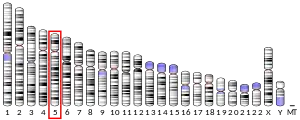| LNPEP | |||||||||||||||||||||||||||||||||||||||||||||||||||
|---|---|---|---|---|---|---|---|---|---|---|---|---|---|---|---|---|---|---|---|---|---|---|---|---|---|---|---|---|---|---|---|---|---|---|---|---|---|---|---|---|---|---|---|---|---|---|---|---|---|---|---|
| |||||||||||||||||||||||||||||||||||||||||||||||||||
| Identifiers | |||||||||||||||||||||||||||||||||||||||||||||||||||
| Aliases | LNPEP, CAP, IRAP, P-LAP, PLAP, leucyl/cystinyl aminopeptidase, leucyl and cystinyl aminopeptidase | ||||||||||||||||||||||||||||||||||||||||||||||||||
| External IDs | OMIM: 151300 MGI: 2387123 HomoloGene: 21148 GeneCards: LNPEP | ||||||||||||||||||||||||||||||||||||||||||||||||||
| |||||||||||||||||||||||||||||||||||||||||||||||||||
| |||||||||||||||||||||||||||||||||||||||||||||||||||
| |||||||||||||||||||||||||||||||||||||||||||||||||||
| |||||||||||||||||||||||||||||||||||||||||||||||||||
| Wikidata | |||||||||||||||||||||||||||||||||||||||||||||||||||
| |||||||||||||||||||||||||||||||||||||||||||||||||||
Leucyl/cystinyl aminopeptidase, also known as cystinyl aminopeptidase (CAP), insulin-regulated aminopeptidase (IRAP), human placental leucine aminopeptidase (PLAP), oxytocinase, and vasopressinase, is an enzyme of the aminopeptidase group that in humans is encoded by the LNPEP gene.[5][6]
This gene encodes a zinc-dependent aminopeptidase (metalloexopeptidase) that cleaves vasopressin, oxytocin, lys-bradykinin, met-enkephalin, dynorphin A and other peptide hormones. The protein can be secreted in maternal serum, reside in intracellular vesicles with the insulin-responsive glucose transporter GLUT4, or form a type II integral membrane glycoprotein. The protein catalyzes the final step in the conversion of angiotensinogen to angiotensin IV (AT4) and is also a receptor for AT4. Alternative splicing results in multiple transcript variants encoding different isoforms.[6]
Mutations in this gene have been associated to psoriasis risk.(doi:10.1038/jid.2013.317)
Interactions
Cystinyl aminopeptidase has been shown to interact with TNKS2.[7][8][9]
References
- 1 2 3 GRCh38: Ensembl release 89: ENSG00000113441 - Ensembl, May 2017
- 1 2 3 GRCm38: Ensembl release 89: ENSMUSG00000023845 - Ensembl, May 2017
- ↑ "Human PubMed Reference:". National Center for Biotechnology Information, U.S. National Library of Medicine.
- ↑ "Mouse PubMed Reference:". National Center for Biotechnology Information, U.S. National Library of Medicine.
- ↑ Rogi T, Tsujimoto M, Nakazato H, Mizutani S, Tomoda Y (February 1996). "Human placental leucine aminopeptidase/oxytocinase. A new member of type II membrane-spanning zinc metallopeptidase family". J Biol Chem. 271 (1): 56–61. doi:10.1074/jbc.271.1.56. PMID 8550619.
- 1 2 "Entrez Gene: LNPEP leucyl/cystinyl aminopeptidase".
- ↑ Sbodio, Juan I; Chi Nai-Wen (August 2002). "Identification of a tankyrase-binding motif shared by IRAP, TAB182, and human TRF1 but not mouse TRF1. NuMA contains this RXXPDG motif and is a novel tankyrase partner". J. Biol. Chem. 277 (35): 31887–92. doi:10.1074/jbc.M203916200. ISSN 0021-9258. PMID 12080061.
- ↑ Chi, N W; Lodish H F (December 2000). "Tankyrase is a golgi-associated mitogen-activated protein kinase substrate that interacts with IRAP in GLUT4 vesicles". J. Biol. Chem. 275 (49): 38437–44. doi:10.1074/jbc.M007635200. ISSN 0021-9258. PMID 10988299.
- ↑ Sbodio, Juan I; Lodish Harvey F; Chi Nai-Wen (February 2002). "Tankyrase-2 oligomerizes with tankyrase-1 and binds to both TRF1 (telomere-repeat-binding factor 1) and IRAP (insulin-responsive aminopeptidase)". Biochem. J. 361 (Pt 3): 451–9. doi:10.1042/0264-6021:3610451. ISSN 0264-6021. PMC 1222327. PMID 11802774.
Further reading
- Albiston AL, Mustafa T, McDowall SG, et al. (2003). "AT4 receptor is insulin-regulated membrane aminopeptidase: potential mechanisms of memory enhancement". Trends Endocrinol. Metab. 14 (2): 72–7. doi:10.1016/S1043-2760(02)00037-1. PMID 12591177. S2CID 6481079.
- Keller SR (2004). "The insulin-regulated aminopeptidase: a companion and regulator of GLUT4". Front. Biosci. 8 (6): s410–20. doi:10.2741/1078. PMID 12700100.
- Keller SR (2005). "Role of the insulin-regulated aminopeptidase IRAP in insulin action and diabetes". Biol. Pharm. Bull. 27 (6): 761–4. doi:10.1248/bpb.27.761. PMID 15187412.
- Nomura S, Ito T, Yamamoto E, et al. (2005). "Gene regulation and physiological function of placental leucine aminopeptidase/oxytocinase during pregnancy". Biochim. Biophys. Acta. 1751 (1): 19–25. doi:10.1016/j.bbapap.2005.04.006. PMID 15894523.
- Tsujimoto M, Hattori A (2005). "The oxytocinase subfamily of M1 aminopeptidases". Biochim. Biophys. Acta. 1751 (1): 9–18. doi:10.1016/j.bbapap.2004.09.011. PMID 16054015.
- Mizutani S, Shibata K, Kikkawa F, et al. (2007). "Essential role of placental leucine aminopeptidase in gynecologic malignancy". Expert Opin. Ther. Targets. 11 (4): 453–61. doi:10.1517/14728222.11.4.453. PMID 17373876. S2CID 42839602.
- Tsujimoto M, Mizutani S, Adachi H, et al. (1992). "Identification of human placental leucine aminopeptidase as oxytocinase". Arch. Biochem. Biophys. 292 (2): 388–92. doi:10.1016/0003-9861(92)90007-J. PMID 1731608.
- Mizutani S, Akiyama H, Kurauchi O, et al. (1985). "In vitro degradation of angiotensin II (A-II) by human placental subcellular fractions, pregnancy sera and purified placental aminopeptidases". Acta Endocrinol. 110 (1): 135–9. doi:10.1530/acta.0.1100135. PMID 3898693.
- Beckman L, Björling G, Christodoulou C (1966). "Pregnancy enzymes and placental polymorphism. II. Leucine aminopeptidase". Acta Genetica et Statistica Medica. 16 (2): 122–31. doi:10.1159/000151957. PMID 5953194.
- Itoh C, Watanabe M, Nagamatsu A, et al. (1997). "Two molecular species of oxytocinase (L-cystine aminopeptidase) in human placenta: purification and characterization". Biol. Pharm. Bull. 20 (1): 20–4. doi:10.1248/bpb.20.20. PMID 9013800.
- Laustsen PG, Rasmussen TE, Petersen K, et al. (1997). "The complete amino acid sequence of human placental oxytocinase". Biochim. Biophys. Acta. 1352 (1): 1–7. doi:10.1016/S0167-4781(97)00036-5. PMID 9177475.
- Nagasaka T, Nomura S, Okamura M, et al. (1998). "Immunohistochemical localization of placental leucine aminopeptidase/oxytocinase in normal human placental, fetal and adult tissues". Reprod. Fertil. Dev. 9 (8): 747–53. doi:10.1071/R97055. PMID 9733056.
- Horio J, Nomura S, Okada M, et al. (1999). "Structural organization of the 5'-end and chromosomal assignment of human placental leucine aminopeptidase/insulin-regulated membrane aminopeptidase gene". Biochem. Biophys. Res. Commun. 262 (1): 269–74. doi:10.1006/bbrc.1999.1184. PMID 10448104.
- Rasmussen TE, Pedraza-Díaz S, Hardré R, et al. (2000). "Structure of the human oxytocinase/insulin-regulated aminopeptidase gene and localization to chromosome 5q21". Eur. J. Biochem. 267 (8): 2297–306. doi:10.1046/j.1432-1327.2000.01234.x. PMID 10759854.
- Nakanishi Y, Nomura S, Okada M, et al. (2001). "Immunoaffinity purification and characterization of native placental leucine aminopeptidase/oxytocinase from human placenta". Placenta. 21 (7): 628–34. doi:10.1053/plac.2000.0564. PMID 10985965.
- Chi NW, Lodish HF (2001). "Tankyrase is a golgi-associated mitogen-activated protein kinase substrate that interacts with IRAP in GLUT4 vesicles". J. Biol. Chem. 275 (49): 38437–44. doi:10.1074/jbc.M007635200. PMID 10988299.
- Matsumoto H, Nagasaka T, Hattori A, et al. (2001). "Expression of placental leucine aminopeptidase/oxytocinase in neuronal cells and its action on neuronal peptides". Eur. J. Biochem. 268 (11): 3259–66. doi:10.1046/j.1432-1327.2001.02221.x. PMID 11389728.
- Iwase A, Nomura S, Mizutani S (2001). "Characterization of a secretase activity for placental leucine aminopeptidase". Arch. Biochem. Biophys. 393 (1): 163–9. doi:10.1006/abbi.2001.2489. PMID 11516173.
- Ito T, Nomura S, Okada M, et al. (2001). "Transcriptional regulation of human placental leucine aminopeptidase/oxytocinase gene". Mol. Hum. Reprod. 7 (9): 887–94. doi:10.1093/molehr/7.9.887. PMID 11517297.
External links
- The MEROPS online database for peptidases and their inhibitors: M01.011
- Cystinyl+aminopeptidase at the U.S. National Library of Medicine Medical Subject Headings (MeSH)



